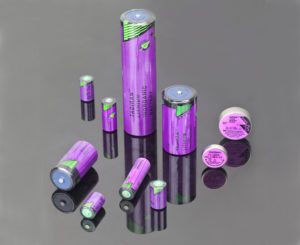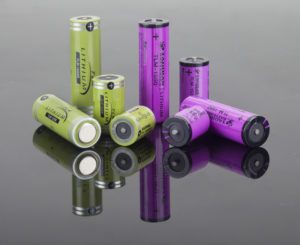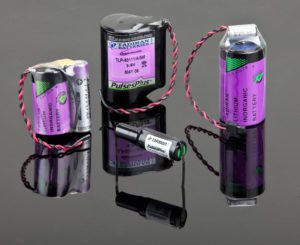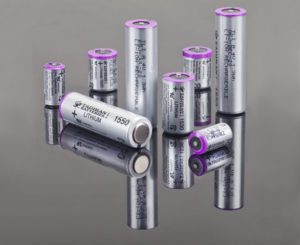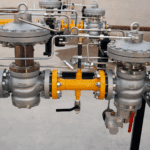Tire Pressure Monitoring Systems (TPMS) are essential for safe driving. But like any other component, they rely on batteries to function. When the battery dies, so does the effective monitoring of tire health.
When manufacturing TPMS sensor batteries, you should know what affects their lifespan. Without proper attention to detail, you can face a lot of unexpected costs. However, you can save time and money in the long run by taking proactive steps to extend their life. Join us as we explore practical strategies to extend the life of your TPMS sensor battery.
Key Factors Affecting TPMS Sensor Battery Lifespan
The lifespan of a TPMS sensor battery typically ranges from five to ten years. However, several factors can significantly influence this duration. Let’s see what you should pay attention to when tracking battery behavior in your sensors.
First, the type of battery you use plays a critical role. One of the best options is lithium thionyl chloride batteries, which are reliable but also provide a longer lifespan of up to 10 years and more. Additionally, they can withstand harsh temperatures. Extreme heat and cold can accelerate battery drain over time. This is why Tadiran ensures to provide a range of options for your needs, including long life battery for TPMS sensors.
The quality of installation matters as well. Poorly installed sensors might face more wear and tear, leading to premature failure or malfunction. This is why you should know about all these factors so that you can better manage your TPMS sensor’s health and efficiency.
Best Practices for Maximizing Battery Efficiency
First of all, remember that proper installation is quite important. Ensure each sensor is securely attached to prevent unnecessary strain on the battery. A loose connection can lead to erratic readings and increased energy consumption.
Further, consider using high-quality tires compatible with TPMS technology. These can reduce stress on the sensors, which can ultimately benefit battery life.
Of course, use quality batteries. The TPMS sensor battery powers the sensor and directly impacts the entire system’s longevity and reliability. You should invest in high-quality batteries designed specifically for TPMS applications. These batteries are built to withstand the unique demands of tire pressure sensors, such as extreme temperatures and constant vibration. A reliable battery reduces the need for frequent replacements, which means that your TPMS system maintains its accuracy and functionality over the long term.
The Impact of Temperature on Battery Life
Extreme heat can accelerate chemical reactions within the battery, leading to a quicker depletion of power. Conversely, frigid temperatures can hinder these reactions, reducing efficiency and performance. In colder conditions, batteries may appear dead but often regain functionality once warmed up.
It’s important to know that temperature fluctuations can also cause internal stress on the TPMS sensor battery components. This strain might lead to premature failure over time. “Tadiran Batteries” provides high-quality lithium batteries able to work properly in temperatures ranging from -40 to +125 degrees Celsius.
Maintenance Tips to Prolong TPMS Sensor Battery Life
If you implement effective maintenance practices, it can significantly prolong battery life, which will reduce the need for frequent replacements and enhance customer satisfaction. Here are some maintenance tips for your TPMS sensor battery:
- Regular Sensor Inspections
Regularly inspect TPMS sensor Battery to identify any potential issues that could lead to battery drain. This includes checking for physical damage, corrosion, or loose connections that might cause the sensor to malfunction. Early detection and repair of these issues can prevent unnecessary battery usage and extend its lifespan.
- Ensure Proper Installation
Ensure that the sensors are securely attached and correctly positioned on the tire to avoid unnecessary strain or movement that could cause the battery to work harder than necessary. Correct installation minimizes energy wastage and helps the battery last longer.
- Monitor Temperature Exposure
Further, make sure that your TPMS Sensor Battery are designed to withstand the full range of temperatures they will encounter in real-world conditions. If possible, advise end-users to avoid exposing their tires to extreme heat or cold for extended periods, as this can shorten the battery’s lifespan. This is a reason more to choose Tadiran, offering a lithium battery for high temperatures.
- Optimize Data Transmission Settings
Adjusting the data transmission settings of your TPMS sensors can help conserve battery life. For instance, reducing the frequency of transmissions or limiting data transmission to when there are significant changes in tire pressure can prevent the battery from being overworked.
- Regular Calibration and Firmware Updates
Regularly calibrating your TPMS sensors and updating their firmware can enhance battery efficiency. Calibration ensures that the sensors accurately measure tire pressure, preventing false readings that could trigger unnecessary data transmissions.
- Consider Seasonal Adjustments
If your TPMS sensors are used in regions with significant seasonal temperature variations, consider adjusting the sensor settings based on the time of year. For instance, increasing the transmission frequency during winter months, when tire pressure fluctuations are more common, and reducing it during summer.
A well-maintained TPMS system can enhance drivers’ safety and convenience and reinforce your brand’s reputation as a provider of high-quality, durable products. This is why you should get in touch with Tadiran Batteries. What separates us from other industrial battery companies? We offer quality products for all your needs. For more information, do not hesitate to contact us.
FAQ
Does TPMS Have a Separate Battery?
Yes, TPMS sensors typically have a built-in, non-replaceable battery that powers the sensor. Depending on usage and environmental factors, these batteries are designed to last for several years, usually between 5 to 10 years. The battery life is influenced by factors such as driving habits, temperature fluctuations, and the quality of the battery itself.
What is the Best TPMS Sensor Battery?
When selecting the best battery for TPMS (Tire Pressure Monitoring System) sensors, you should choose the one that offers reliability, longevity, and the ability to withstand harsh conditions. This is where lithium thionyl chloride batteries come in handy, as they can last up to 10 years and more and withstand temperatures from -40 to +125 degrees Celsius.
Playing the article for the visually impaired:



